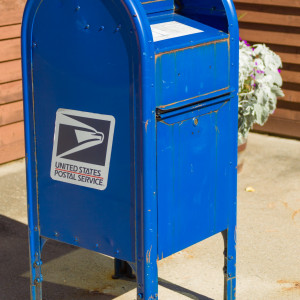COVID-19 has seized the nation and caused jurisdictions around the country to change their election timing and processes. With epidemiological models calling for social distancing until May, most states, including my university’s home state of Pennsylvania, postponed their spring primary elections accordingly. And while many states are just now considering expanding vote-by-mail, thanks to last year’s PA Act 77, Pennsylvania already allows any voter to request a vote-by-mail ballot.
Because of these steps, Pennsylvania has a valuable head start addressing the difficulties of having a free and fair election in a time of COVID-19. But more changes are needed – in Pennsylvania and elsewhere – to avoid voter disenfranchisement. Most importantly, we need to change the deadlines for mailed-in ballots from “received by” the board of elections on election day to “postmarked by” election day.
Vote-by-mail is a massive logistical undertaking. Some states, such as Oregon and Washington, have had widespread vote-by-mail for decades. They expect the majority of their citizens to vote-by-mail – indeed, they mail every registered voter a ballot. They have a robust infrastructure to handle the process, including sufficient personnel to manage ballot distribution and to tabulate the mail-in votes. That infrastructure served Washington well when the state entered a state of emergency due to COVID-19 before its March primary. They could go ahead with minimal disruption because they were already prepared for everyone to vote-by-mail if need be.
States without a longstanding vote-by-mail tradition aren’t fairing nearly as well. Wisconsin – an anticipated November swing state – showed us last week what can happen when state legislatures fail to plan sufficiently for a COVID-19 election and an associated surge in mail-in ballots requests. Wisconsin refused to postpone its primary until June when social-distancing orders might be relaxed, making it the lone April 7 holdout. There were concerns that a COVID 19-fueled surge in mail-in requests, combined with delays in processing, had left many voters without the ability to get their ballots submitted by Wisconsin’s deadline. Fierce litigation ensued. When that did not succeed in postponing the election, the governor sought to do so by executive order. Rulings by the Wisconsin Supreme Court and the U.S. Supreme Court late on the day before the primary quashed that executive order and refused to extend the deadline for postmarking ballots, respectively.
In-person voting thus went ahead in Wisconsin on April 7 but not without substantial obstacles. A significant number of poll workers had withdrawn due to health concerns, resulting in a statewide deficit of 7,000 workers. Because of staff shortages and polling station hygiene concerns, far fewer polling places opened than usual. Milwaukee, for example, used only five polling places instead of its customary 180. As a result, some voters waited more than two hours on lines with varying quality of appropriate social distancing.
We don’t want Pennsylvania and other upcoming primary states to make the same mistakes and force voters to choose between their health and democracy. Even with the recently passed federal stimulus funding for elections, it is unclear how successful states will be at ramping up their election infrastructure before upcoming primaries, let alone the November general election. Not only can we expect a COVID-19 surge in vote-by-mail applications to result in processing delays, but also current conditions make it difficult for voters – particularly the elderly and disabled – to get to a post office or otherwise submit their ballots. Even if voters do receive a timely ballot, COVID-19 is expected to impact the timeliness of USPS mail delivery. To mitigate the potential for disenfranchisement, we need to allow as much time as possible for election workers to process vote-by-mail applications and for voters to return them.
Voting is the bedrock of our representative democracy and in turn, American rule of law. Even in the best of times, our elections have missteps. And even before COVID-19, experts and the general public were concerned about possible foreign interference in this election cycle. In a time of pandemic, preparation is all the more important to preserving our institutions against increasing unknowns. Voters should not be disenfranchised for circumstances beyond their control such as postal or processing delay. At a minimum, if we want to protect American voting rights, minimize voter disenfranchisement, and avoid the chaos Wisconsin suffered last week, state legislatures need to take action now to encourage voters to request mail-in ballots early and to change the ballot deadline to a postmark one. As a nation, let’s learn from Wisconsin but not repeat it.
Alexandra A.K. Meise is a Senior Fellow at the Center for Ethics and the Rule of Law at University of Pennsylvania, a Political Partner of the Truman National Security Project, and an adjunct professor of International Human Rights Law at Georgetown University Law Center. She has over a decade of experience working to support free and fair elections at home and abroad. @hvlawwilltravel







